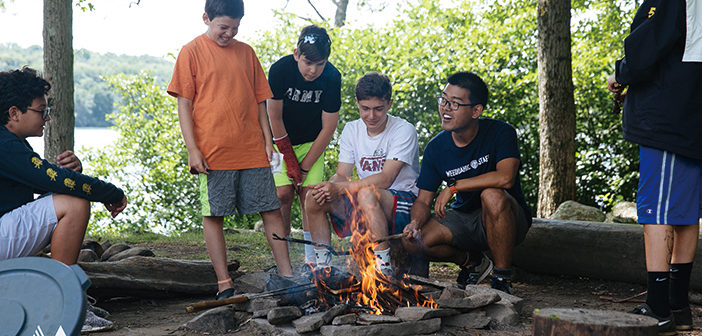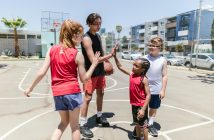Many of us grew up with idyllic notions of summer camp filled with campfires, piping hot s’mores, innocent pranks, and hikes featuring majestic views of unspoiled mountainous landscapes. These American summer camp staples have become a constant source of cultural inspiration in films and television. But for international families, sending your child to camp can also be an ideal way to instill a child with a western cultural education, which can be difficult to attain when you call China home. But, whatever your heritage may be, these immersive programs abroad have the potential to be highly rewarding for a child’s well-being and confidence, while growing lifelong friendships, teaching important life skills, and providing a sense of community away from the comforts of home. To discuss the ongoing interest in American-style summer camps and their value, we sat down with Cole Kelly.
Cole Kelly, along with his wife Kate Kelly, runs Camp Weequahic, a popular summer co-ed camp in Pennsylvania. “It rhymes with ‘mosaic,’” said Kelly about the tongue twister name, which means “head of the cove” in the Native American Lenape language. Founded in 1953, Camp Weequahic is a traditional sleepaway camp that offers two three-week sessions and a full six-week, or “Super Six,” option each summer. Enrollment has grown dramatically over the years, from 120 kids to over 700 for this upcoming summer session. Last fall, Kelly was in Beijing meeting families to talk with prospective campers, something that camp directors constantly do in the off-season to promote their unique experiences to families around the world. “I visit every family before they come to camp,” says Kelly. “I’ve averaged about 120 homes a year.”
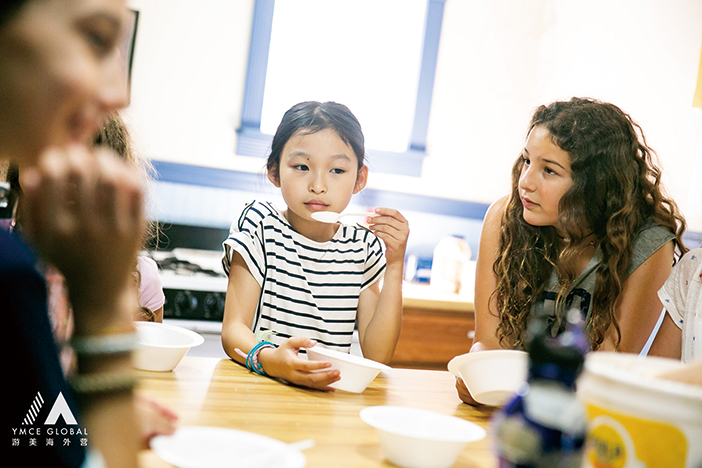
Increasing interest from international kids means Weequahic must overcome the challenges of accommodating them. The majority of Weequahic campers are from different US states, mostly up and down the east coast, but about ten percent or more of these campers come from countries around the world, with many originating from China, Mexico, Malaysia, and Russia. “We get a lot of flying unaccompanied minors,” said Kelly. “We make the maximum effort to make sure parents feel comfortable, sending lots of information, down to including a picture of the face of the person who will pick them up at the airport.”
Campers of the same nationality are usually bunked separately, so they don’t form cliques and become unable to relate to the other campers. “You don’t want one bunk to have three Chinese kids, who only speak Mandarin to one another,” said Kelly. For Chinese campers specifically, living in a native English-speaking environment at a less academically focused pace enables them to hone in on their personal values, actual interests, and social skills.
Weequahic, as with most internationally friendly summer camps, employ a Chinese-speaking liaison to avoid language and cultural miscommunication when dealing with parents. Also, to satisfy understandably nervous parents, letter writing is a biweekly affair. US-based kids are required to write home twice a week, letters which are stamped and sent via “snail mail”. The international kids also get to write handwritten letters which are then scanned and immediately sent to their parent’s email. The immediacy of email makes the parents feel more comfortable, since many do not accompany their kids on the trip to camp in Pennsylvania.
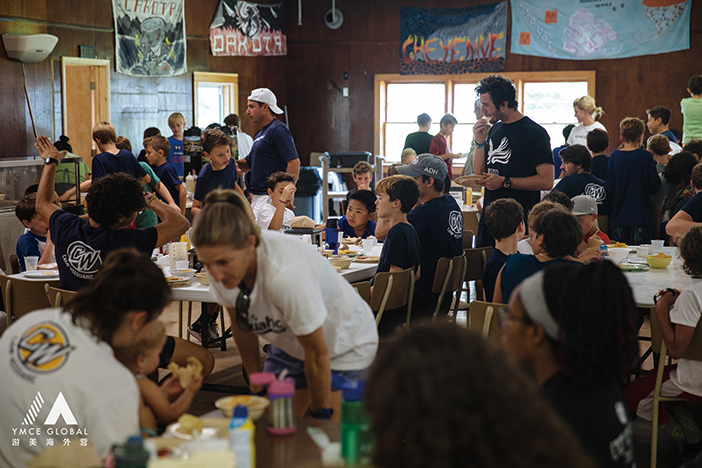
Like at most summer camps, fun and games are abundant, but also values and ethics are instilled by counselors to encourage a productive and positive experience. Weequahic’s values, for example, are summed up in three words: Gratitude, Attitude, and Courage, or GAC. GAC values help campers build up good character, which will help with their outlook, reaction to stresses, social skills, and confidence.
At home, between the academic pressure of homework, after-school activities, and planning for school admissions, most kids do not have the time or even a perceived need for ethical lessons. Camp can teach these skills through bonding activities with peers, cooperation, and by setting daily missions and expectations.
For older campers, the focus can also be on giving back and contributing to the community. A policy of “you get rights when you have responsibilities” means students in grades 9-12 take Lifeguard CPR training, gain first aid certification, and learn basic life skills, like changing a tire. But to really make older campers feel a part of something bigger than themselves, they are encouraged to lead junior kids in activities or training. “I think that’s what they all want, to have meaning and purpose,” says Kelly. “And when they see their friends doing it as well they think, ‘wow, this is really cool.’”
Another added bonus for some device-glued preteens is “no tech allowed” policies, which are common in many American summer camps, Weequahic included. Only offline MP3 players are allowed, which means campers can socialize in real time and bond through experiences, rather than scrolling blankly though Instagram, Facebook, or in the case of China, WeChat feeds.
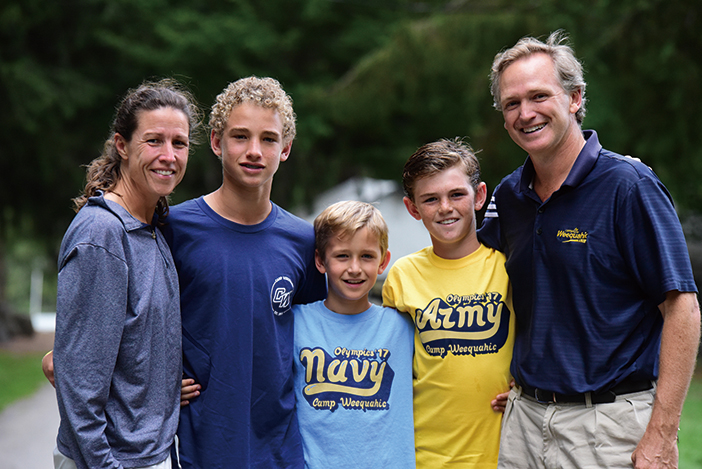
Cole Kelly (right) and his family at Camp Weequahic
When campers return home, not only do they say they’ve had the best time of their lives, but they also feel more independent, something which is challenging to teach in a classroom setting. “The truth about some of our kids is that they haven’t even made their own bed before. They haven’t made some of their own choices. At our camp, they have to choose their programs on a daily basis,” says Kelly. “It takes so much courage to go to camp, to say ‘I can do this,’ and it opens up their world.”
Summer camp programs help build character and a sense of independence, which are values often not tackled in school, but not all of them are created equal in this respect. Much like choosing a school, it is essential to make sure it’s the right fit for your child. “Because if it’s a right fit, it’s a total gift,” says Kelly.
If Camp Weequahic sounds like the right fit for you then contact their China-based partners, the YMCE Group, for more info. Along with this, YMCE offer a number of summer camps and other adventurous learning opportunities based in China. (sasha@ymcegroup.com, 6417 3809, www.ymcegroup.com)
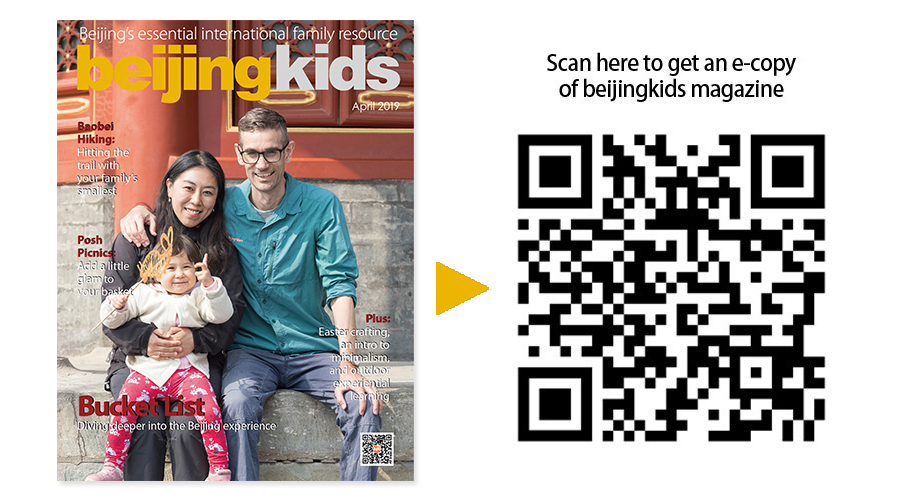
This article first appeared in the beijingkids April 2019 Exploring Beijing issue.
Photos:

